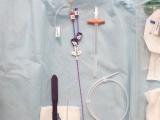Most Americans understand that overuse of antibiotics can threaten their effectiveness, but only a minority agree that bacterial resistance is a serious problem, according to the results of a small survey reported yesterday in Open Forum Infectious Diseases.
The survey also showed various misunderstandings about antimicrobial resistance, with a large majority of respondents believing they could become personally immune to some antibiotics and 40% thinking antibiotics are the best treatment for a cold.
Amazon recruiting tool used
The survey was conducted by researchers at Case Western Reserve University and the Veterans Affairs Medical Center in Cleveland. They recruited participants through Mechanical Turk, an online platform developed by Amazon for recruiting and paying people to perform tasks. "MTurk" makes it possible to attract respondents with a wide range of ages, socioeconomic backgrounds, and ethnicities, the report says.
Using this tool, the researchers recruited 225 participants, who were paid 30 cents to complete the survey. The participants had a slightly lower median age and a somewhat higher educational level than the US population as a whole.
After a group of demographic questions, the 13-item survey began by asking respondents to briefly describe antibiotic resistance in their own words, an approach designed to prevent the survey itself from introducing biases.
Strong majority aware of threat
The researchers received responses from 215 of the 225 people who received the survey. An overwhelming majority showed awareness of antimicrobial resistance, with 93% agreeing that inappropriate use of antibiotics could lead to resistance and 90% agreeing that overuse could make the drugs ineffective in the future.
On the other hand, only 30% agreed that resistance is "a significant problem"—even though 76% acknowledged that resistance is a problem in hospitals. The report does not mention the survey's margin of sampling error.
Among other findings from responses to multiple-choice questions were these:
- Most respondents (71%) said antibiotics are overprescribed.
- Forty percent said antibiotics are the best treatment for a runny nose and sore throat, although only 24% agreed that antibiotics work on most coughs and colds.
- A sizable minority (29%) said antibiotics can kill viruses, but 65% disagreed.
- Most (72%) said they trusted their doctor's advice on the need for antibiotics, but only 55% agreed that doctors and nurses are adequately educated on the resistance problem.
- Most (60%) said the use of antibiotics in livestock can lead to resistant bacteria in meat.
Resistance as a human property
The free-text part of the survey drew 198 responses. In analyzing the responses for major themes, the authors found that 36% of the participants thought that resistance to antibiotics was a function of the human body rather than of bacteria. Moreover, in the multiple-choice questions, 89% agreed with the statement "It's possible that I could build immunity to certain antibiotics over time."
Some previous surveys in other countries have revealed the same misunderstanding, the report says. For example, a 12-nation survey conducted by the World Health Organization found that 76% of respondents agreed that the body becomes resistant to antibiotics.
The findings point up the continued need for education about "the biological events that lead to antibiotic resistance," the authors concluded. "Given that most of the participants indicated that they trust their doctor or nurse, these professionals may be the most effective at teaching patients about prudent antimicrobial use."
Carter RR, Sun J, Jump RLP, et al. A survey and analysis of the American public's perceptions and knowledge about antibiotic resistance. Open Forum Infect Dis 2016 (published online Jun 1) [Full text]






















